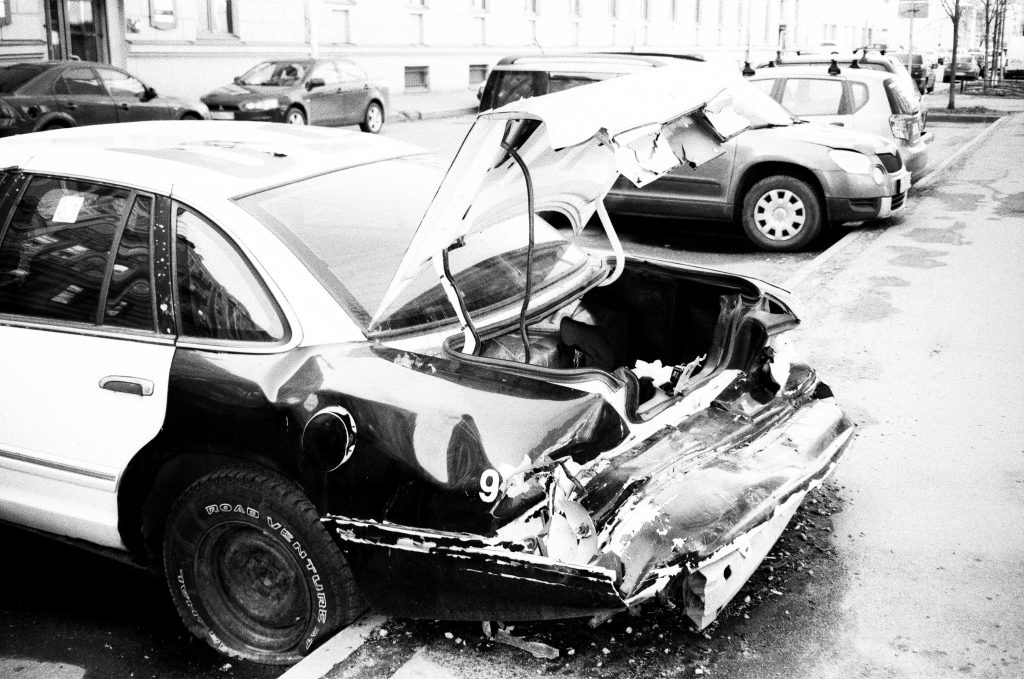 Dollar stores carry a wide variety of merchandise, and stacking these items on shelves saves space. When stocking, employees should always take reasonable care to stack items in a safe manner so they do not fall off the shelf and potentially injure shoppers. For one Slidell man, however, an everyday grocery trip to Dollar General turned into a 4-year, $50,000 lawsuit.
Dollar stores carry a wide variety of merchandise, and stacking these items on shelves saves space. When stocking, employees should always take reasonable care to stack items in a safe manner so they do not fall off the shelf and potentially injure shoppers. For one Slidell man, however, an everyday grocery trip to Dollar General turned into a 4-year, $50,000 lawsuit.
Charles Frazier went to Dollar General one August day to buy a quart of oil; however, when he went to grab the bottle, plastic tote lids on the shelf above him slid off, bumped him in the neck, and caused him to fall onto one knee. After getting up, he reported the incident to a store manager. Then, nearly a year later, he sued Dollar General for $50,000 in injuries, claiming that he suffered physical pain, mental anguish, medical expenses, and lost wages. According to his lawsuit, Dollar General was negligent in allowing its merchandise to fall off the shelf and onto customers.
These types of lawsuits are appropriately known as falling merchandise cases, and the statute that governs ensuing negligence claims is La. R.S.9:2800.6(A). The Louisiana law provides that a merchant, like Dollar General, must use “a reasonable effort to keep the premises free of any hazardous conditions.” When brought to trial, the Twenty-Second Judicial District Court of Louisiana ruled in favor of Mr. Frazier, but applied Section B of this statute. This section, instead of requiring an injured party to show that a hazardous condition existed, only requires a showing that the “condition presented an unreasonable risk of harm.” La. R.S.9:2800.6(B). The defendant, Dollar General, appealed this decision to the Louisiana First Circuit Court of Appeal.
 Louisiana Personal Injury Lawyer Blog
Louisiana Personal Injury Lawyer Blog


 If you are a homeowner, the number of security measures you take to protect your house is likely largely influenced by the safety of your area. For example, if there’s a lot of crime in the area or a lack of good lighting on your street at night, you will probably more carefully guard your home. Contrarily, if you trust your neighbors and have a vigilant neighborhood watch group, you might even feel comfortable leaving your doors unlocked. Businesses think about many of the same factors when deciding how much security their store needs. One major difference between a home and a business is that a business’s lack of security can potentially make it liable for negligence if a crime happens on their property.
If you are a homeowner, the number of security measures you take to protect your house is likely largely influenced by the safety of your area. For example, if there’s a lot of crime in the area or a lack of good lighting on your street at night, you will probably more carefully guard your home. Contrarily, if you trust your neighbors and have a vigilant neighborhood watch group, you might even feel comfortable leaving your doors unlocked. Businesses think about many of the same factors when deciding how much security their store needs. One major difference between a home and a business is that a business’s lack of security can potentially make it liable for negligence if a crime happens on their property.  Sometimes, whether your case takes place in federal court or state court may be out of your hands entirely. Other times, it may be possible for the case to take place in either court. In such situations, it is important to understand possible differences and advantages between state and federal court. When one party wants the case in federal court and the other wants it in state court, things can get tricky, as a 2017 case from the United States Court of Appeals for the Fifth Circuit shows.
Sometimes, whether your case takes place in federal court or state court may be out of your hands entirely. Other times, it may be possible for the case to take place in either court. In such situations, it is important to understand possible differences and advantages between state and federal court. When one party wants the case in federal court and the other wants it in state court, things can get tricky, as a 2017 case from the United States Court of Appeals for the Fifth Circuit shows. When a party to a lawsuit waits too long to respond to a lawsuit or flat out declines to respond, courts have the ability to resolve the case with a default judgment. This default judgment resolves the case and the non-responding party must live with the court’s decision. While not ideal, it is a needed mechanism for times when a party does not comply with the rules. With the help of an excellent attorney an injured driver won his lawsuit when a Leesville vehicle repair shop failed to properly respond to his lawsuit.
When a party to a lawsuit waits too long to respond to a lawsuit or flat out declines to respond, courts have the ability to resolve the case with a default judgment. This default judgment resolves the case and the non-responding party must live with the court’s decision. While not ideal, it is a needed mechanism for times when a party does not comply with the rules. With the help of an excellent attorney an injured driver won his lawsuit when a Leesville vehicle repair shop failed to properly respond to his lawsuit. When driving at night, it is always important to make sure your vehicle lights are working, not just so you can see, but also so others can see you. Not only can this simple task avoid an accident, but failure to do so can get you in trouble with the law.
When driving at night, it is always important to make sure your vehicle lights are working, not just so you can see, but also so others can see you. Not only can this simple task avoid an accident, but failure to do so can get you in trouble with the law. When one is injured due to the negligence of another, it is reasonable to expect an award of damages. However, the plaintiff must first prove all the elements of negligence. Not only must a plaintiff prove the defendant had a duty of care which the defendant violated, but the plaintiff must also offer evidence that shows the defendant’s conduct was the factual and legal cause of the plaintiff’s injuries. For many cases, the causal connections can be difficult to prove and requires expert testimony. For these reasons, a good lawyer is essential for the successful outcome of a negligence suit.
When one is injured due to the negligence of another, it is reasonable to expect an award of damages. However, the plaintiff must first prove all the elements of negligence. Not only must a plaintiff prove the defendant had a duty of care which the defendant violated, but the plaintiff must also offer evidence that shows the defendant’s conduct was the factual and legal cause of the plaintiff’s injuries. For many cases, the causal connections can be difficult to prove and requires expert testimony. For these reasons, a good lawyer is essential for the successful outcome of a negligence suit. The Louisiana Supreme Court has recognized that awarding damages for medical expenses without awarding pain and suffering damages, though seemingly inconsistent, is not invalid on its face.
The Louisiana Supreme Court has recognized that awarding damages for medical expenses without awarding pain and suffering damages, though seemingly inconsistent, is not invalid on its face.  What happens when a person is injured due to a company’s negligence and the company is based outside of the United States? The plaintiff generally must file a lawsuit in federal court, but there are certain jurisdictional requirements that have to be met. A plaintiff’s ability to file a lawsuit against an international company in a U.S. district court depends on how much “contact” the company has with the United States.
What happens when a person is injured due to a company’s negligence and the company is based outside of the United States? The plaintiff generally must file a lawsuit in federal court, but there are certain jurisdictional requirements that have to be met. A plaintiff’s ability to file a lawsuit against an international company in a U.S. district court depends on how much “contact” the company has with the United States. We often hear that insurance companies are stingy and heartless. Though some descriptions of insurance companies are exaggerated, it is nevertheless true that insurance companies are judicious in paying out claims. In some cases, an insurance company will attempt to avoid payment at almost any cost.
We often hear that insurance companies are stingy and heartless. Though some descriptions of insurance companies are exaggerated, it is nevertheless true that insurance companies are judicious in paying out claims. In some cases, an insurance company will attempt to avoid payment at almost any cost.  In personal injury cases, the plaintiff can only successfully prove the defendant’s negligence if a legal duty of care exists. Where there is no duty of care as a matter of law, a trial court can dismiss the lawsuit by summary judgment. So, when a defendant files a petition for summary judgment claiming that no duty exists, he is saying that even if all of the facts alleged by the plaintiff are true, there still is no duty of care owed by the defendant to the plaintiff.
In personal injury cases, the plaintiff can only successfully prove the defendant’s negligence if a legal duty of care exists. Where there is no duty of care as a matter of law, a trial court can dismiss the lawsuit by summary judgment. So, when a defendant files a petition for summary judgment claiming that no duty exists, he is saying that even if all of the facts alleged by the plaintiff are true, there still is no duty of care owed by the defendant to the plaintiff.